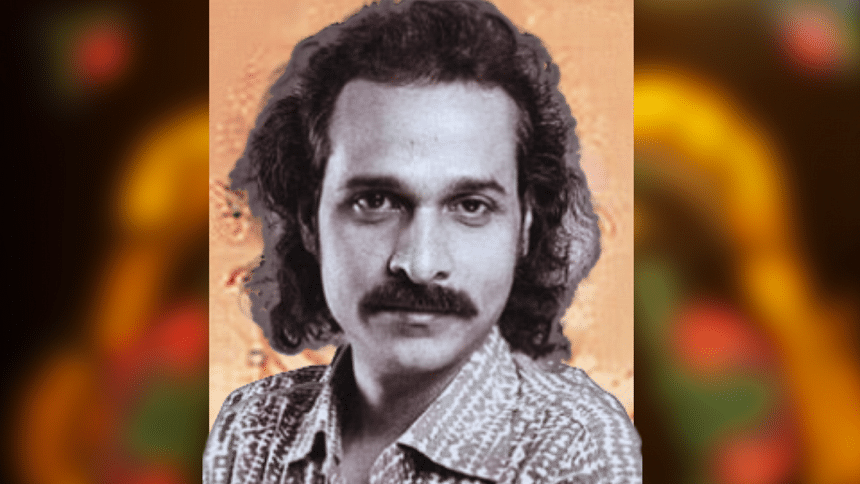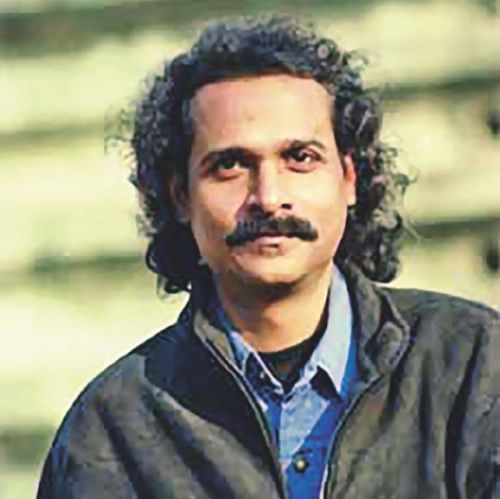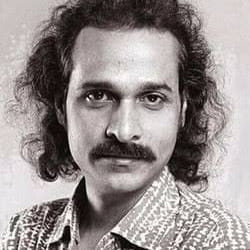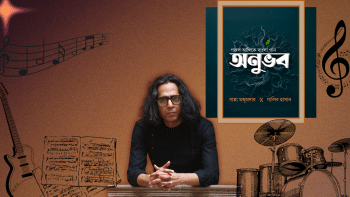Remembering Sanjeeb Chowdhury

Sanjeeb Chowdhury, the revolutionary singer, lyricist, and journalist, is one such figure in our country whose legacy endures through his creation. Though he may no longer be with us, his words and melodies continue to inspire, with his songs reverberating in the hearts of listeners, keeping his spirit alive to this day.
Meanwhile, Bappa Mazumder, the other half of the iconic band Dalchhut, frequently receives requests to perform songs that Sanjeeb penned, composed, or sang at concerts and TV appearances. His absence hasn't dulled his presence, and his beloved tracks like "Ami Tomakei Bole Dibo," "Amake Ondho Kore Diyechhilo Chand," and "Bioscope" keep his spirit alive.
Today marks the 17th anniversary of Sanjeeb Chowdhury's untimely death, a day etched in sorrow for the Bangladeshi music scene. On November 19, 2007, Sanjeeb left us, but his legacy continues to shape the cultural landscape.

As the co-founder of Dalchhut and one of its most influential members—Sanjeeb played a defining role in crafting the band's sound, pushing the boundaries of contemporary Bangladeshi music. His partnership with Bappa birthed several milestone albums that are still celebrated today: "Ahh" (1997), "Hridoypur" (2000), "Akashchuri" (2002), and "Jochhona Bihar" (2007). Each album defined a new era for Bangla rock and modern folk, blending deep lyricism with melodic mastery.
Born on December 25, 1964, in the quiet village of Makalkandi in Baniachong upazila of Habiganj, Sanjeeb was the seventh of nine children of Gopal Chowdhury and Probhashini Chowdhury. Even in his early years, Sanjeeb's unique blend of creativity and intellect marked him as someone destined for greatness. His passion for poetry, music, and social commentary became the hallmark of his life's work.

A natural-born storyteller, Sanjeeb's lyrics captured the essence of life's joys, sorrows, and revolutions. His music, much like his journalism, was a voice for the people—raw, evocative, and deeply connected to the socio-political climate of Bangladesh. He had the rare ability to fuse the personal with the political, making his art resonate with both the masses and the critics alike.
Today, his memory endures not just in the songs he left behind but in the impact he had on the artistes and listeners who were shaped by his words and melodies. As one of the most influential figures in Bangladesh's music and media landscape, Sanjeeb's work continues to serve as a blueprint for generations of musicians and activists alike.

 For all latest news, follow The Daily Star's Google News channel.
For all latest news, follow The Daily Star's Google News channel. 







Comments